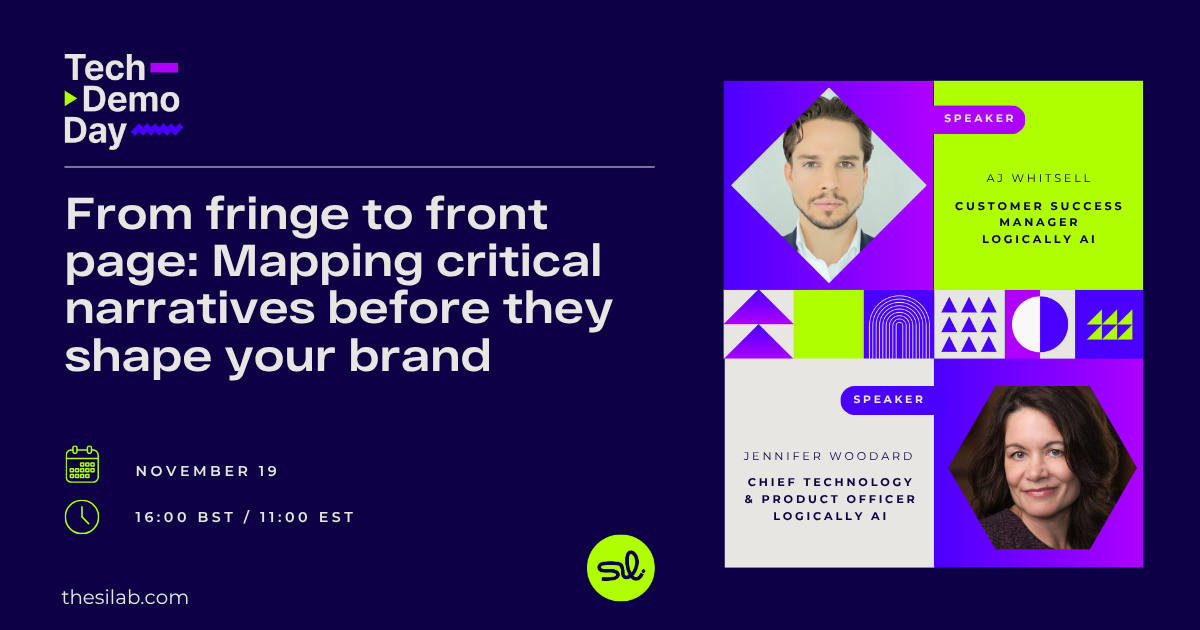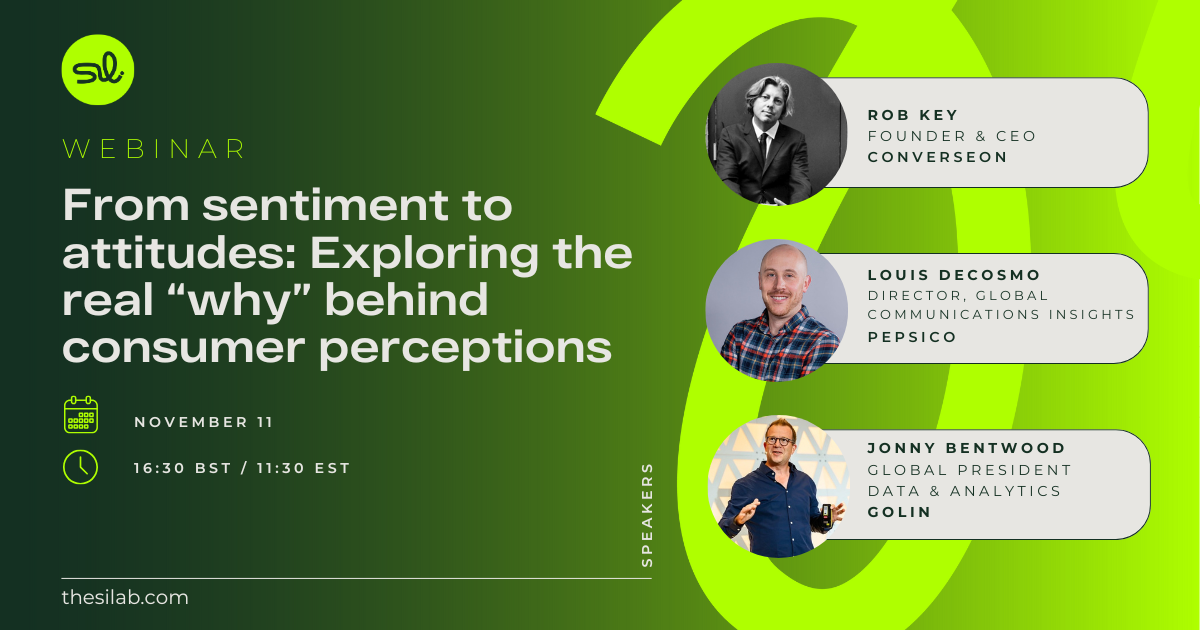.png)
Got a Zombie Crisis? How Social Data Can Help
Gaming zombies. Phone zombies. Zombie accounts on social media. Even zombie viruses under the Arctic permafrost are threatening another global health crisis… It seems as if zombies are everywhere these days.
But what is the "zombie crisis" that brands sometimes have to face?
This is a topic that came up during a recent roundtable of social and media insights leaders, coined by Mary Beth Levin, Manager of Social Media Strategy & Analytics at USPS. She sees zombie crises as persistent stories - sometimes false stories - that refuse to die, and sometimes come back to life in sudden and terrifying ways.
“A zombie issue is simply an issue which will not die. Unfortunately, given the interest in vote-by-mail, we have seen images misrepresented – even altered. And they resurface every two years, presenting as something new.”
Practitioners in the social and media intelligence space view these events as cyclical. Every now and again the same slew of stories related to a brand will crop back up. The result? Various stakeholders (at various times) become increasingly anxious about the impact on brand reputation.
Given how fast the current news cycle is, consumers rarely read beyond the headline. So, it’s imperative that negative news stories (especially ones from years ago that refuse to die) aren’t still doing the rounds, needlessly adding to the online noise.
Mary Beth advises keeping abreast of these recurring zombie crises because “being able to provide the history and the context allows for a timely response to executives internally and journalists externally.” You can provide this context via social intelligence. This involves monitoring social media platforms and online conversations to gather insights about what consumers are saying about your brand, product, or industry.
The need for accurate reporting during zombie crises
Dealing with “zombie issues” can be pretty uncomfortable. These stories often misrepresent you and/or your brand, and no one likes reading negative or misleading content. After all, it’s often the loudest voice that gets the most attention online, even if it’s a false narrative. That said, fact-checkers and professionals who track these narratives are used to it.
Brands need to get familiar with the common criticisms in their industry and set benchmarks for the usual noise that isn’t worth panicking over. This helps in knowing when a situation actually needs a tactical response.
Social intelligence professionals should have a playbook ready for recurring zombie crises. During the roundtable, it was emphasized that having an actionable plan is crucial for demonstrating to leadership what occurred previously.
Another key takeaway was the importance of documenting any crisis, ensuring preparedness, and the ability to reference past events if similar situations arise (and they inevitably will).
Technology is key to managing these crises. Having access to live social data is crucial for real-time monitoring and response, emphasizing the importance of staying updated and proactive in the digital world.
Most importantly, technology can do the detection and number crunching necessary to separate zombie signals from the noise. NewsWhip CEO Paul Quigley explains that “as a comprehensive listening tool, we take on the job of ingesting the news, posts, discussion, the whole chaos of it. And we make it legible for the professionals who need to make decisions, escalate when a Zombie issue comes back to life, and de-escalate when it's dormant."
How to mitigate a zombie crisis
In a recent study on how brands can handle potentially negative stories, NewsWhip published a new Foresight Framework. You’ll see the study pertains specifically to political polarization, but the framework itself can apply to a wide range of comms issues.
For instance, the following steps can be applied in terms of mitigating recurring zombie stories.
Step 1 – Benchmarking: Prioritize setting benchmarks for company-specific goals. Establish a baseline understanding of the engagement levels from previous zombie issues. This way, when it inevitably recurs, you’ll have tangible data for comparison.
Step 2 – Slow reporting: This involves continuously monitoring media coverage and news related to your benchmarked issue, ensuring you capture all relevant updates. You can organize into weekly or monthly reports, providing a comprehensive overview of trends, key events, and shifts in public sentiment.
Step 3 – Fast reporting: Using the benchmark data from Step 1, establish automated real-time alerts to detect any resurgence of the zombie issue. Set engagement thresholds so that if a story spikes and exceeds these limits, it signals a potential problem. Think of it as setting up a tripwire in the forest to warn you before the zombie reaches the house.
Step 4 – Predicting the impact: Armed with the necessary data, you can now effectively predict where this zombie story is headed. Is it going to have a quick and uneventful demise that doesn't require any reaction on your behalf? Or perhaps it's showing signs of life whereby you need to take some preemptive measures to ensure it doesn't breach your boundaries.
Preparing for a potential zombie crisis
As 2024 progresses, prepping for increasing cases of zombie stories might be a good idea. At least having a solid plan, that's ready to deploy, is crucial – and the above steps born from The Foresight Framework offer a practical starting point.
If you’re interested in gaining more insights to help you deal with potential impacts on your brand reputation, consider becoming a member of our community at the SI Lab.
It gives you access to tools and expertise to support your work with social data. It connects you with an international network of like-minded social intelligence professionals.
About NewsWhip
We partnered with NewsWhip to run a private roundtable on Making live social data the hero: online brand backlash, boycotts, and misinformation. NewsWhip provides predictive tools and analysis to keep comms teams ahead of a news cycle.
This interview was recorded via LinkedIn Live, if you prefer to view on LinkedIn, click the button below.
View InterviewSee related content
.png)








